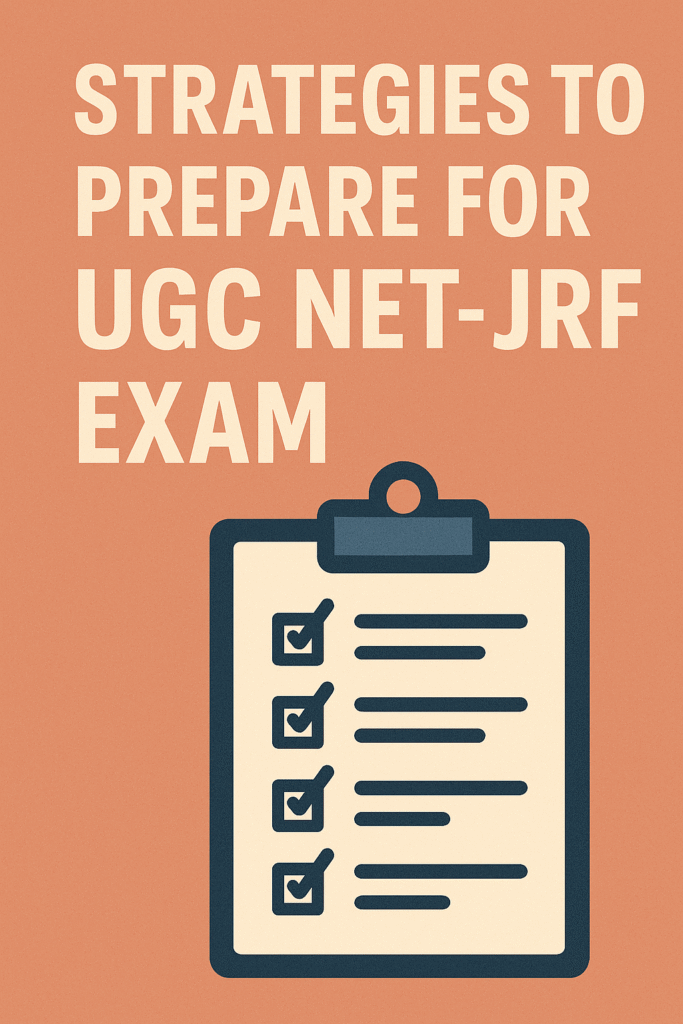When I began preparing for the UGC NET JRF exam, I was filled with questions but had no real answers. I turned to Google and YouTube, only to find vague strategies, half-baked motivational videos, and self-proclaimed experts. It did not take me long to realise that a lot of the content was repetitive and lacking any depth.
I thought seniors in the university might help, but most were too guarded with their strategies. The pressure of competition and the fear of losing their so-called expert status made them reluctant to share anything of substance.
Thus, I had to figure it all out on my own. It took multiple failed attempts, changing strategies, mental exhaustion, and finally some clarity. Now that I have cleared JRF, I want to offer what I did not get in the beginning, grounded advice that does not rely on shortcuts or fake motivation.
These are lessons I learned by actually going through the process, and I hope they help you design a preparation plan that works for you.
1. Do Not Settle for NET — Aim for JRF from Day One
One of my biggest mistakes was starting with the idea that I would just try to get NET first. I thought I would focus on JRF later. I had heard from many seniors and classmates that cracking JRF was extremely difficult, especially in the unreserved category. That fear got into my mind early, and I started aiming low.
Because of this mindset, I focused mainly on Paper II and ignored large parts of Paper I. I studied only enough to get just over 25 questions right in Paper I. My preparation was divided. I cleared NET, but fell short of JRF multiple times — by five questions once, and by three in another attempt.
Looking back, I realise that this was a flawed approach. Preparing for just NET makes you repeat the same exam, the same material, and the same strategy over and over again. It exhausts you and delays your progress.
Set JRF as your main goal. If you aim high, NET will come naturally along the way. But if you aim only for NET, you risk being stuck in a cycle.
2. Create a Time Table That Is Realistic and Made for You
Everyone talks about having a time table, but nobody tells you that copying someone else’s routine can do more harm than good. In the beginning, I tried to follow study plans I found online, but I could not sustain them. They were designed for people who had no classes or other responsibilities.
What worked for me was making a routine that respected my schedule. I had coursework classes five days a week, so I worked around that. I started with 3 to 4 hours of study a day, then gradually increased it to 5 or 6. I assigned themes to each day. For example, Monday was for Advertising, Tuesday for Public Relations, Wednesday for Theory, and so on. I also reserved one day every week just for revision.
I kept short breaks between study sessions and longer breaks after every few hours. I made space for both content reading and PYQ solving. You can either make a time block for PYQ practice every day or dedicate one full day in a week for it.
Do not blindly follow someone else’s plan. Understand your pace, your energy levels, and your other responsibilities. Then make a schedule that works for you and adjust it when needed.
3. Give Equal Importance to Paper I
In my early attempts, I underestimated Paper I. I thought Paper II was all that mattered, and Paper I was just general knowledge and basic aptitude. This was a huge mistake.
Paper I has the power to decide whether you clear JRF or not. In more than one attempt, it was Paper I that pulled my score down. Once I started preparing it seriously, it helped me cover the gap and move above the cut-off.
Paper I is not as unpredictable as people think. The question types often repeat. There is a pattern in research aptitude, data interpretation, teaching aptitude, and even logical reasoning. All of these can be mastered through revision and regular PYQ practice.
Treat both papers with equal attention. Paper I is not just an add-on. It is part of your total score and often the deciding factor.
4. Use PYQs Not Just for Practice, but as a Core Strategy
I will say this without hesitation — PYQs are the most powerful tool in UGC NET JRF preparation. In my first attempt, I made the mistake of reading books endlessly and ignoring PYQs. I barely cleared anything.
By the second attempt, I added PYQs but without changing my strategy. It helped me clear NET, but not JRF. In the third attempt, I relied heavily on PYQs and solved them repeatedly. I understood the pattern, identified common question categories, and even started predicting what could come next. Still, I fell short by just three questions.
It was only in the fourth attempt that I used PYQs in a structured way. I revised them thoroughly, created notes from the options given, and tried to understand the examiner’s style. I started categorising questions. For example, for a question on the first English newspaper in India, I did not just learn the correct answer (Bengal Gazette). I also researched the other options like Samachar Darpan, Searchlight, and The Leader. I noted their founders, languages, regions, and significance.
This made my preparation detailed and interconnected. It was no longer about random question-solving but about learning in categories and themes.
PYQs are not just for testing what you know. They are your syllabus in disguise.
5. Do Not Exhaust Yourself Mentally
One thing that no one tells you is how tiring the process can become if you keep failing by a few marks. After three attempts, I had already read most of the material, solved most of the PYQs, and revised them several times. But doing it again and again without result made me mentally tired.
In my last attempt, I had to push through exhaustion. But I also became more aware of my limits. I started working with shorter, focused study sessions. I allowed myself breaks. I avoided useless comparisons. And I stayed consistent, even when I was fed up.
Mental fatigue is real, and it can hurt your performance more than lack of preparation. Do not push yourself to study ten hours a day if it is not sustainable. Build your capacity slowly and protect your energy.
6. Take Advice, But Filter It Carefully
In the beginning, I looked everywhere for guidance. I spoke to seniors, listened to classmates, followed influencers, and watched all kinds of videos. But most of that advice either made me more confused or wasted my time.
The truth is, not everyone who talks about the exam understands it. Many people have failed themselves and still speak with authority. Others hide their strategies out of insecurity.
Do not follow random voices. Stick to a few trusted sources. Most importantly, trust your own experience and keep adjusting as you go. No one knows your mind, your routine, or your goals better than you do.
Closing Thoughts
Cracking UGC NET JRF is not about finding shortcuts. It is about learning how the exam works, managing your time wisely, and staying mentally focused over months. My journey had delays, mistakes, and several close calls. But I learned what works, and I am sharing this so you can avoid going through the same cycle.
So here is my sincere advice. Start with JRF as your goal. Make your own time table. Respect Paper I. Rely on PYQs. Protect your energy. And do not let anyone else’s fear become your reality. You can do this. And you do not have to lose years figuring it out like I did.
If you are still unsure how to approach the exam, read my post on two simple strategies for guaranteed results – Click Here!



Pingback: STRATEGIES TO PREPARE FOR UGC NET-JRF EXAM | Media Decoded
Pingback: June 2012 PYQ Mass Comm & Journalism: Set 1 | Media Decoded
Pingback: June 2012 PYQ Mass Comm and Journalism: Set 2 | Media Decoded
Pingback: June 2013 PYQ Mass Comm and Journalism: Set 1 | Media Decoded